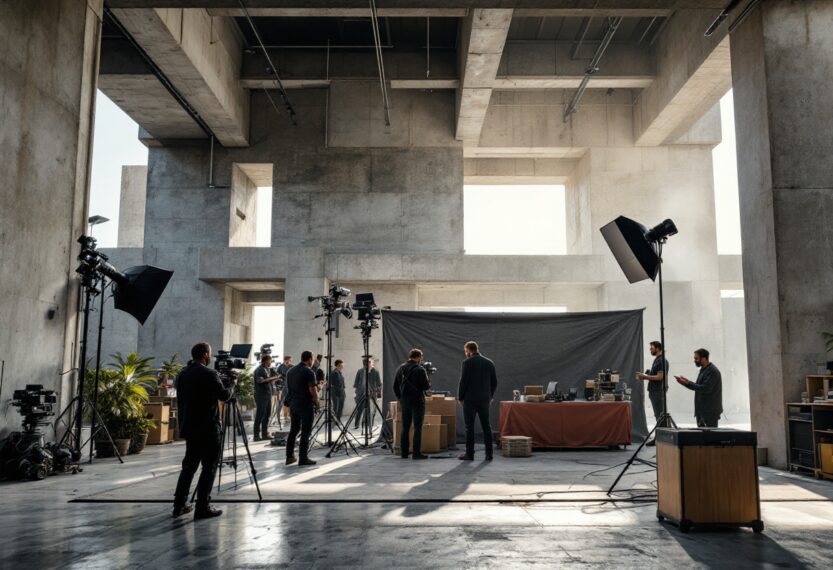The film industry is undergoing a seismic shift as artificial intelligence (AI) technology becomes increasingly integrated into the creative process. The recent controversy surrounding the film The Brutalist, which garnered ten Academy Award nominations, has ignited a heated debate about the ethical implications of using AI in filmmaking. This discussion is not merely academic; it raises fundamental questions about the nature of artistry and authenticity in an era where technology can replicate human creativity.
The rise of AI in film production
AI’s role in filmmaking is not entirely new, but its applications are becoming more sophisticated. In The Brutalist, director Brady Corbet utilized AI technology from Ukrainian company Respeecher to enhance the authenticity of Hungarian dialogue spoken by actors Felicity Jones and Adrien Brody. This decision, while aimed at improving the film’s linguistic accuracy, has sparked a moral quandary among critics and audiences alike. Many argue that relying on AI to refine vocal performances undermines the authenticity of the actors’ craft, suggesting that it is akin to using performance-enhancing drugs in sports.
Authenticity versus efficiency
Corbet defended his use of AI, emphasizing that the technology was employed solely to refine specific vowels and letters in the Hungarian language, not to alter the essence of the performances. He stated, “Adrien and Felicity’s performances are completely their own,” highlighting the extensive coaching they underwent to master their accents. However, this raises an essential question: where do we draw the line between enhancing a performance and compromising its authenticity? As AI tools become more prevalent, filmmakers must navigate the delicate balance between efficiency and the integrity of artistic expression.
The industry’s response to AI integration
The backlash against AI in filmmaking is not isolated to The Brutalist. Other films, such as A24’s Heretic, have made a point to declare that no generative AI was used in their production, signaling a growing trend among creators to distance themselves from AI technologies. This reaction reflects a broader concern within the industry about the potential for AI to dilute the human element of storytelling. Critics argue that while AI can enhance certain aspects of production, it should not replace the nuanced artistry that comes from human experience and emotion.
The future of creativity in the age of AI
As the film industry grapples with these challenges, it is crucial to foster an open dialogue about the role of AI in creative processes. The technology can undoubtedly serve as a valuable tool for filmmakers, allowing them to streamline production and enhance storytelling. However, it is imperative that creators remain vigilant about the implications of their choices. The question of whether AI can coexist with genuine artistry remains unresolved, but one thing is clear: the conversation surrounding AI’s role in filmmaking is just beginning, and its outcomes will shape the future of cinema.




